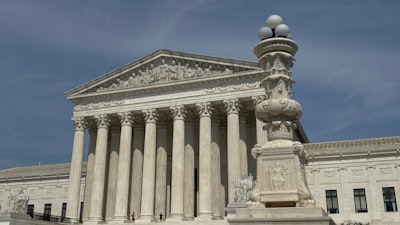The Supreme Court’s recent decision to limit the scope of nationwide injunctions—court orders that block government policies across the entire country—marks a pivotal shift in how legal challenges, particularly those concerning contentious issues like birthright citizenship, will play out in the American judicial system.
A Judicial Power Check
By reining in courts’ ability to issue rulings with sweeping national reach, the justices have signaled a partial retreat from the judiciary’s recent role as an arbiter of hot-button national policy. Instead, legal disputes—such as over birthright citizenship, which grants automatic citizenship to those born on U.S. soil—may now result in a patchwork of regional outcomes. While this may reduce abrupt nationwide policy swings, it risks heightening legal uncertainty and fragmentation depending on where lawsuits are filed or adjudicated.
Understanding the Players and Stakes
Nationwide injunctions have been wielded by both liberal and conservative plaintiffs in recent years: to halt Trump administration immigration bans and Biden-era environmental rules, among others. Federal district judges, sometimes in less politically visible jurisdictions, have handed down decisions halting federal policy for all. Critics say this gives individual judges outsized influence, bypassing normal legal appeals. Supporters argue such orders are necessary to prevent harm while laws are contested, especially when fundamental rights are involved.
Pros and Cons of Limiting Nationwide Injunctions
| Pros | Cons |
|---|---|
| Reduces single-judge national policymaking | Increases legal inconsistency across states |
| Encourages highest courts to resolve issues | Slows emergency relief in urgent rights cases |
| Limits forum-shopping by ideological groups | May burden Supreme Court with faster cases |
| Fosters legal experimentation in circuits | Risks confusion for individuals, agencies |
A Broader Judicial Trend This move is consistent with a broader skepticism among conservative jurists of judicial overreach, yet it also complicates quick, national responses to controversial policies. For immigrants and advocates of birthright citizenship, a decentralized legal process could mean years of uncertainty and a patchwork of rights definitions, as lower courts disagree until higher courts settle the score.
Looking Forward
As America’s most divisive issues—from abortion to voting rights—are litigated, this Supreme Court order may slow abrupt swings but also fragment protections. It may force the Supreme Court to resolve important cases more quickly, potentially concentrating rather than dispersing judicial power. Ultimately, limiting nationwide injunctions reflects a tension at the heart of American governance: Should rights be protected swiftly at a national level, or should localism and institutional restraint prevail?
This article was inspired by the headline: 'Supreme Court limits nationwide injunctions in birthright citizenship order - NPR'.

Comments
No comments yet. Be the first to comment!